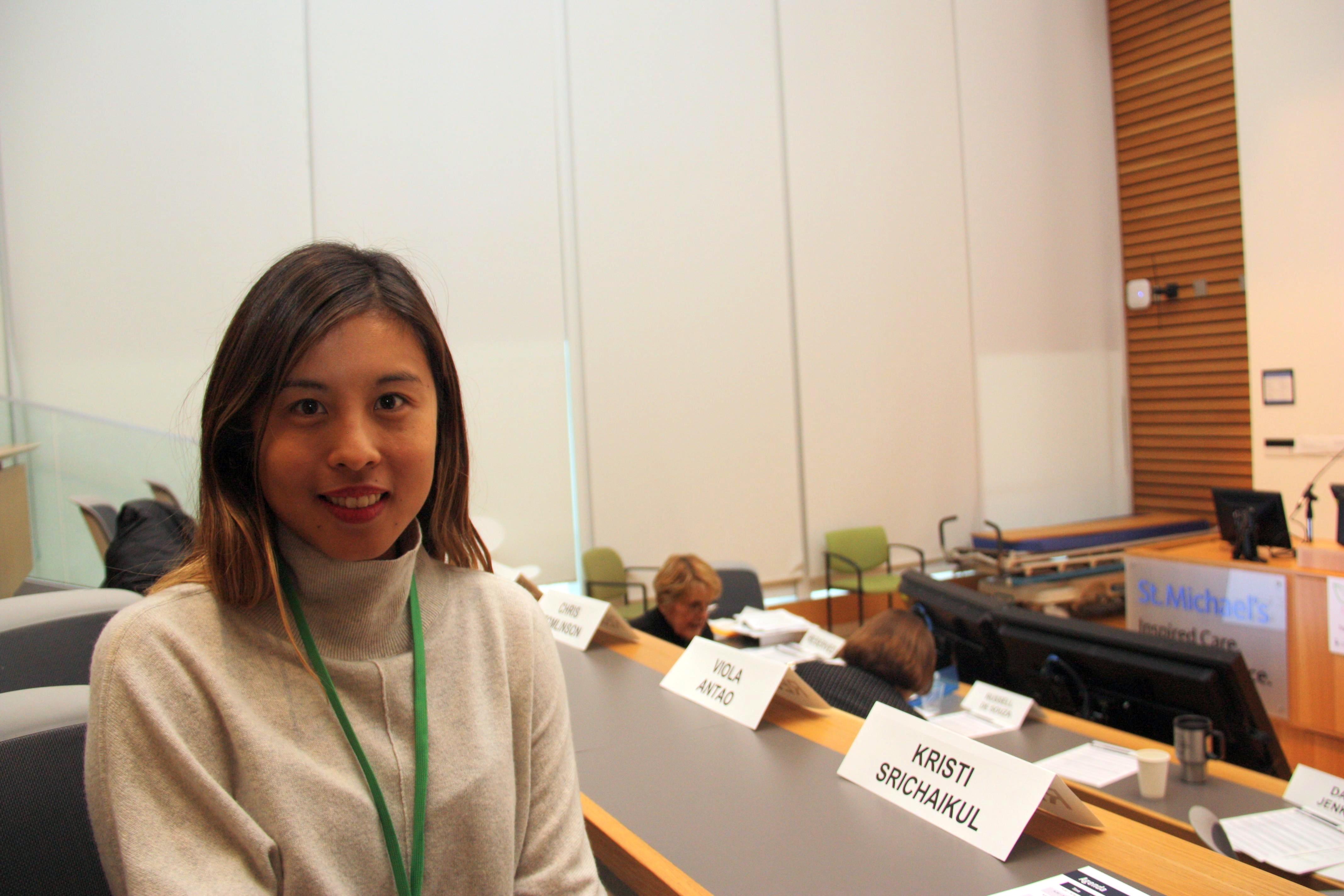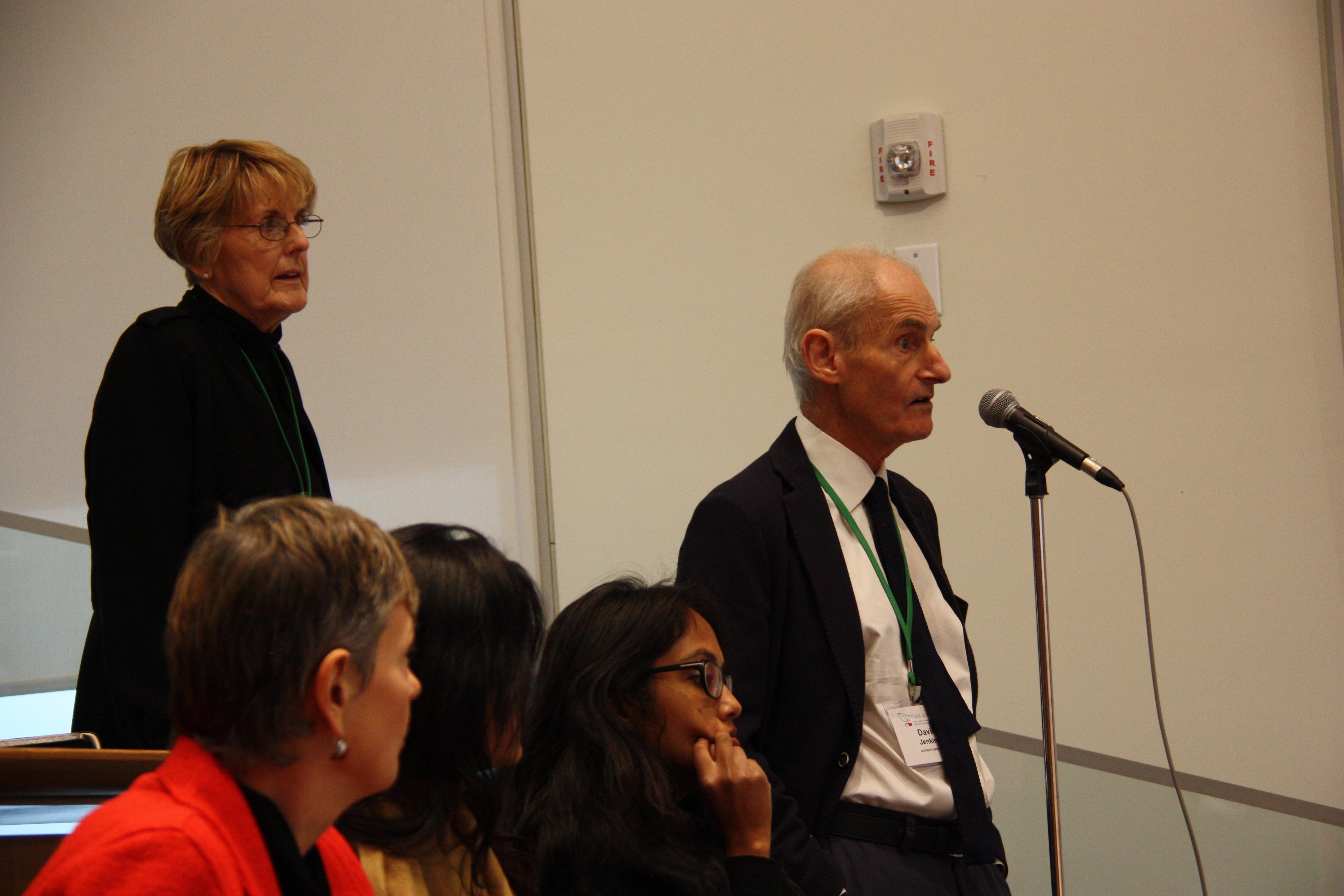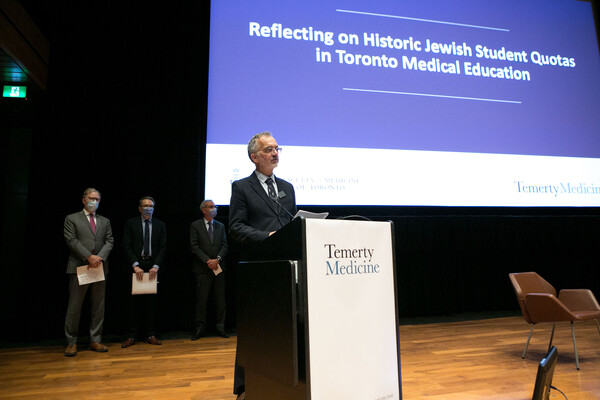Mobile Menu
- Education
- Research
-
Students
- High School Outreach
- Undergraduate & Beyond: Community of Support
- Current Students
- Faculty & Staff
- Alumni
- News & Events
- Giving
- About

Health professionals from across Canada attended a University of Toronto conference earlier this month to hear research and practical advice on nutrition and aging, fats, sugar, the ketogenic diet and gluten sensitivity, among other hot topics.
The accredited ‘Food as Medicine’ event sold out, drawing over 170 physicians, dietitians, researchers, pharmacists and other allied health practitioners — and many more online — looking to update their nutrition knowledge.
“We heard a lot of great feedback on this event anecdotally and through the evaluations participants filled out,” said John Sievenpiper, a professor of Nutritional Sciences at U of T and a researcher at the Joannah & Brian Lawson Centre for Child Nutrition, which co-sponsored the event. “Last year’s conference was focused on basic research, so we tried to offer a broader perspective this time with more clinical takeaways, and that seemed to resonate.”
Discussions were lively after several talks, as attendees lined up to ask questions and provide comments. A talk on the ketogenic diet by Jennifer Sygo, a dietitian and sports nutritionist with Cleveland Clinic Canada, generated considerable interest.
Attendees asked about the keto diet’s safety and long-term effects on weight loss, given that it typically involves a radical reduction of carbohydrate intake and a large increase in fat. That unconventional combination spurs a metabolic state called ketosis, which can lead to efficient fat burning and a greater supply of energy for the brain.
Sygo, who is also the team dietitian for the Toronto Maple Leafs and Toronto Raptors, said there was little evidence for the keto diet as a sustainable way to maintain a healthy body weight over time, but that she has seen significant improvements in cognitive function in some of her clients with brain injuries. Research on these effects is pending.
Sygo noted that Google searches on the diet have skyrocketed since 2016, rivalling veganism as the most-researched diet trend online. Search data on intermittent fasting will likely soon dovetail with keto, she said, now that Google has reworked the way it reports on diet keywords.
Dr. Kristie Srichaikul is a member of the Food as Medicine steering committee, and also a family physician in Toronto and a research collaborator at St. Michael’s Hospital. She said the event provided answers to several common questions that patients ask in her practice.
“There is a lot of mixed messaging out there around what to eat, so people ask about specific diets, or they may want more universal advice,” Srichaikul said. “But it’s important to draw on credible, peer-reviewed, published evidence as a clinician. Tailoring nutritional advice to individuals is also a good strategy, as patients can incorporate these changes into their day-to-day routine easier.”
 Srichaikul said she emphasizes therapeutic dietary patterns such as the low Glycemic Index, Mediterranean and Portfolio diets with her patients — because clinical trial evidence has shown they can lower cardiovascular disease markers. The wide variety of food choices in these patterns can also accommodate individual tastes and cultural differences.
Srichaikul said she emphasizes therapeutic dietary patterns such as the low Glycemic Index, Mediterranean and Portfolio diets with her patients — because clinical trial evidence has shown they can lower cardiovascular disease markers. The wide variety of food choices in these patterns can also accommodate individual tastes and cultural differences.
“I like a holistic approach that focuses on whole foods, which gives patients options and flexibility,” Srichaikul said. “For example, more dahl and less rice, and don’t beat yourself up. Food should be fun and tasty.”
The event also featured the Rundle-Lister Lectureship in Transformative Nutritional Medical Education, given by David Jenkins, a professor of Nutritional Sciences and Medicine at U of T and staff physician at St. Michael’s Hospital. Jenkins spoke about value of plant-based diets for disease prevention and planetary health.
The Food as Medicine update was supported by the Lawson Centre for Child Nutrition, the Department of Nutritional Sciences and Continuing Professional Development at U of T, in partnership with St. Michael’s Hospital, Dr. Margaret Rundle and Stephen Lister.


